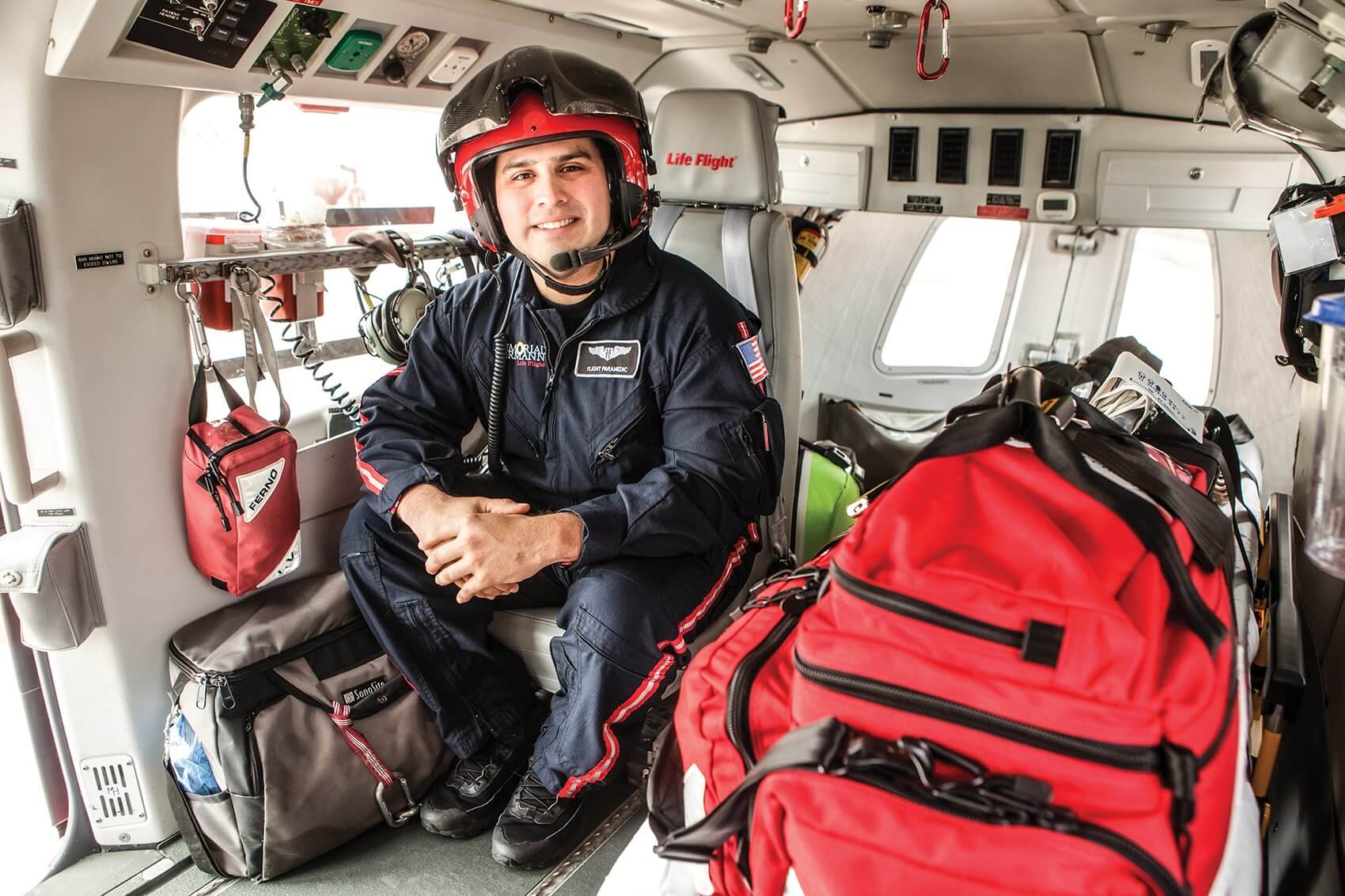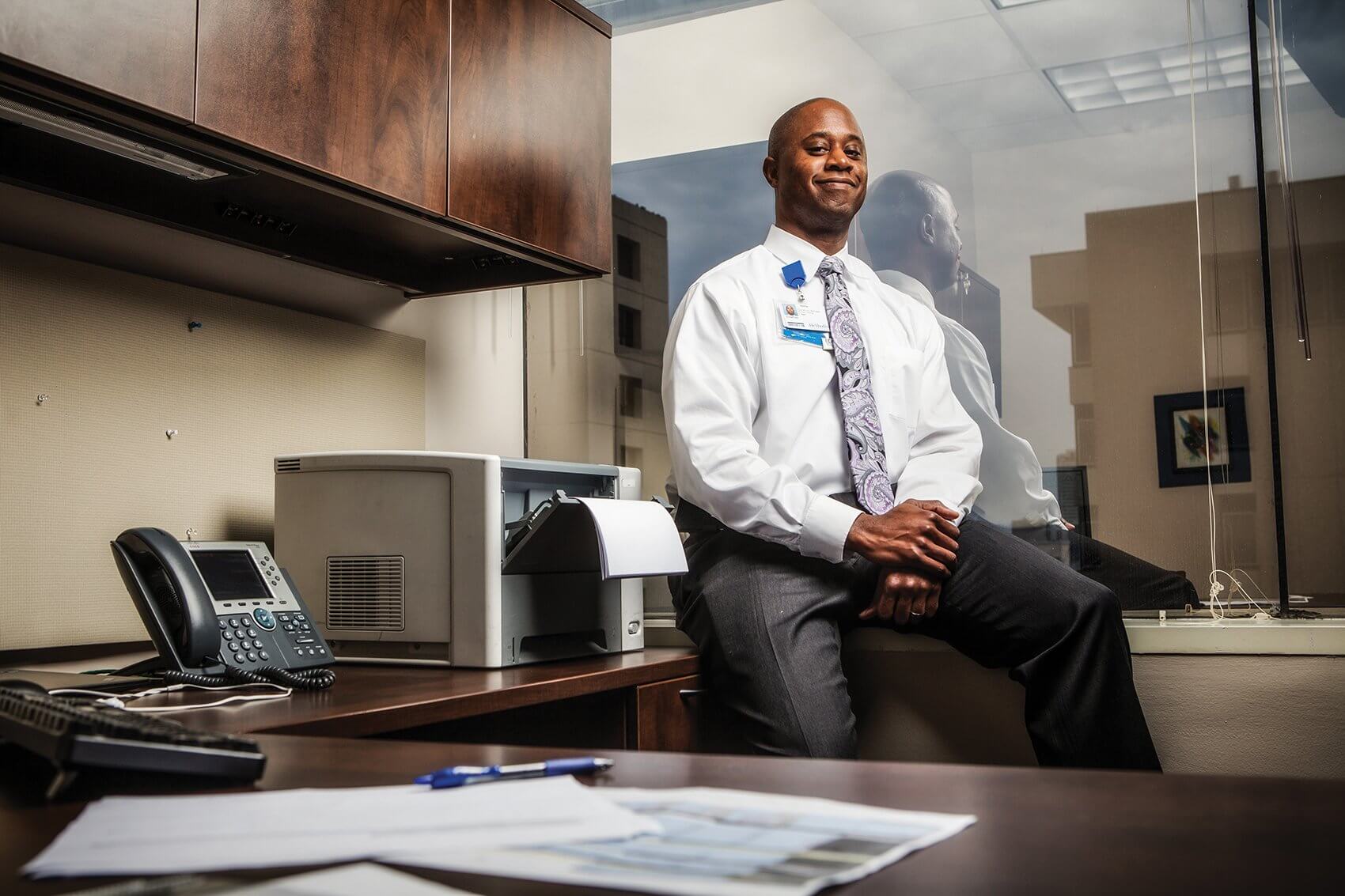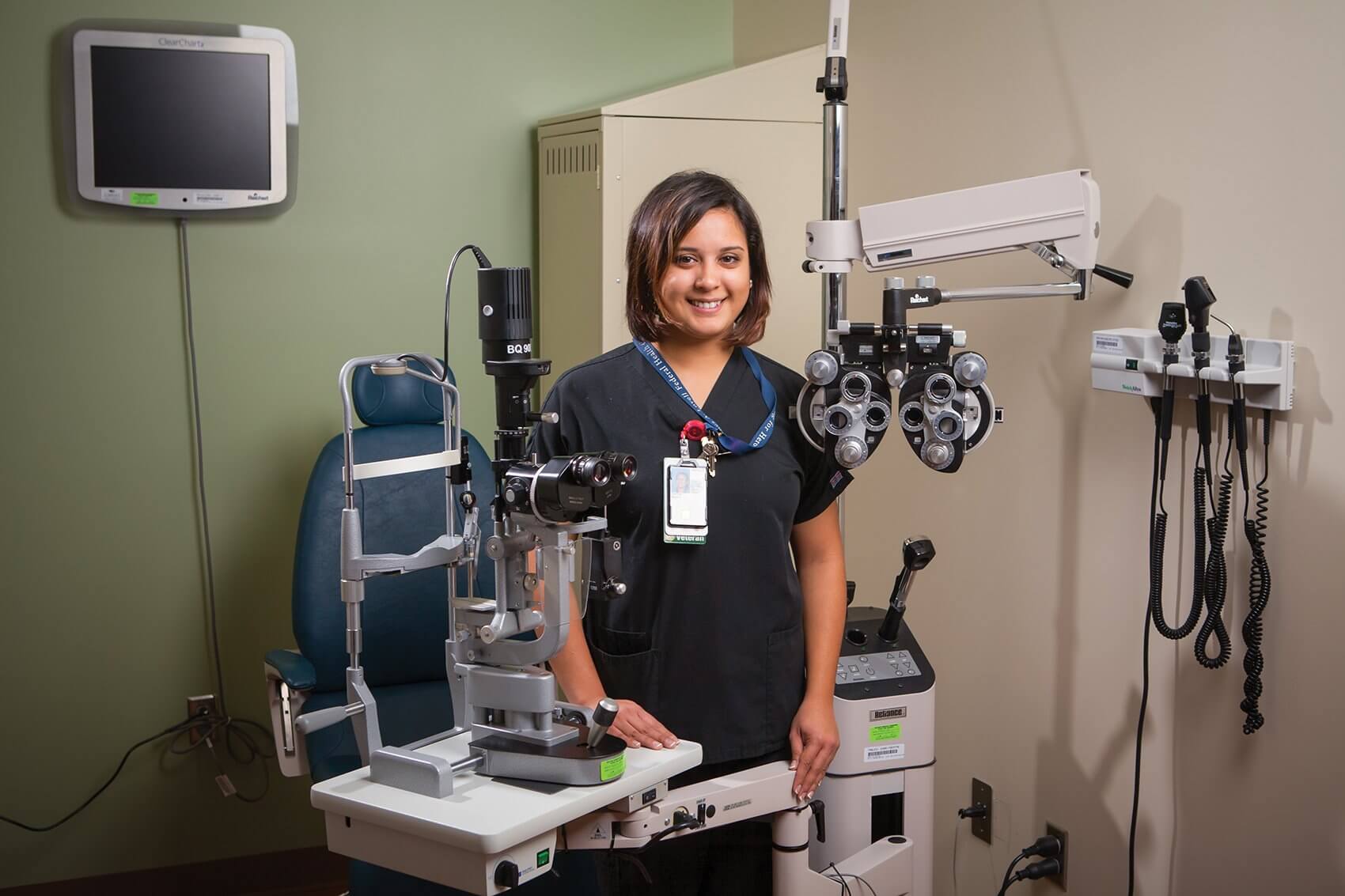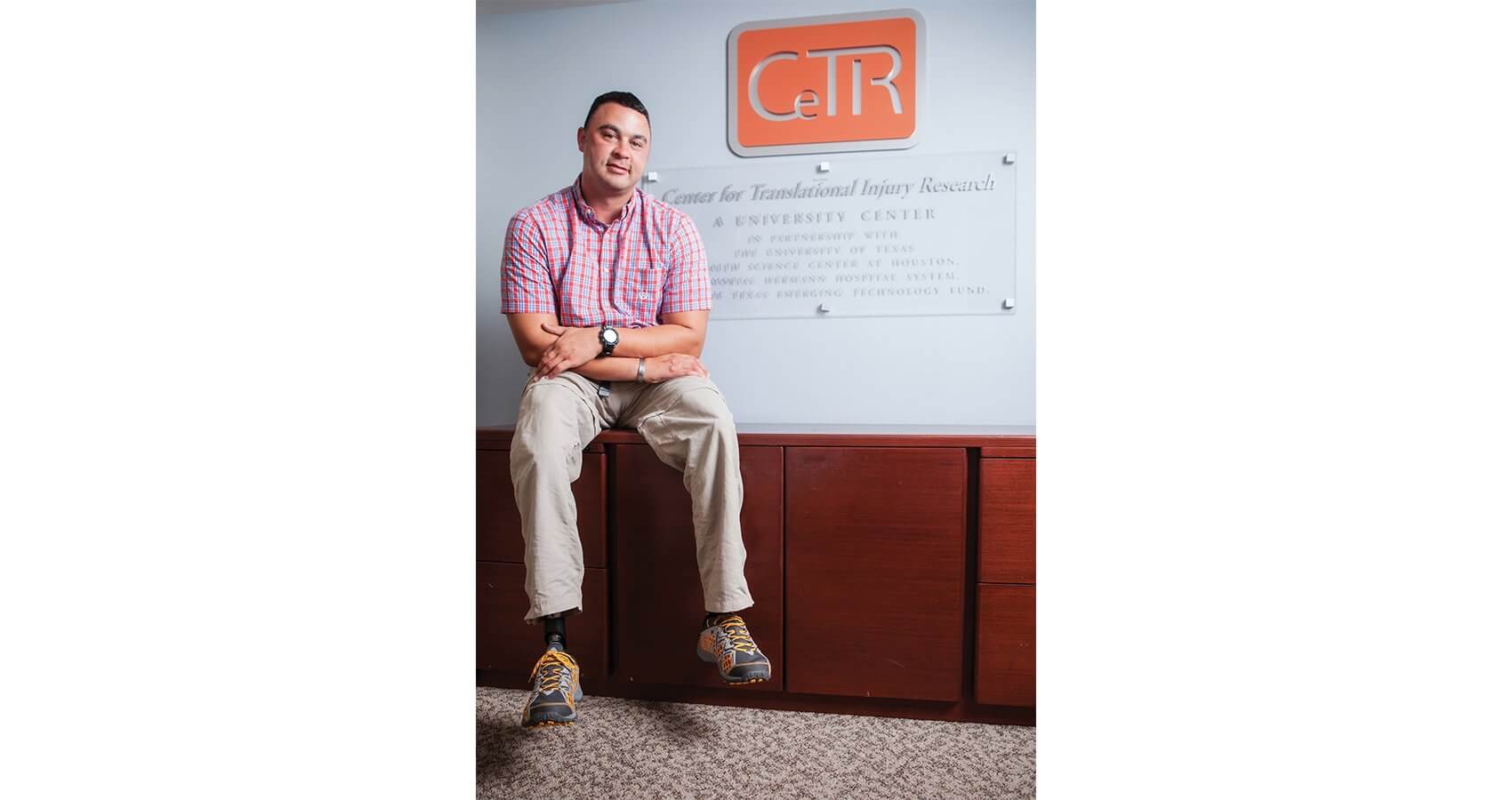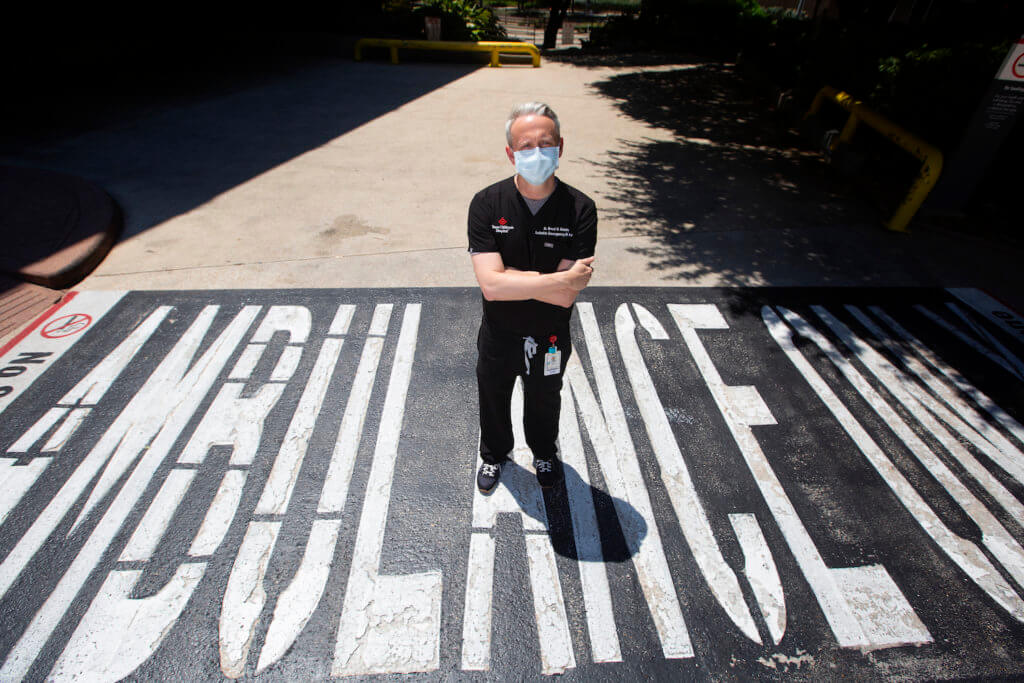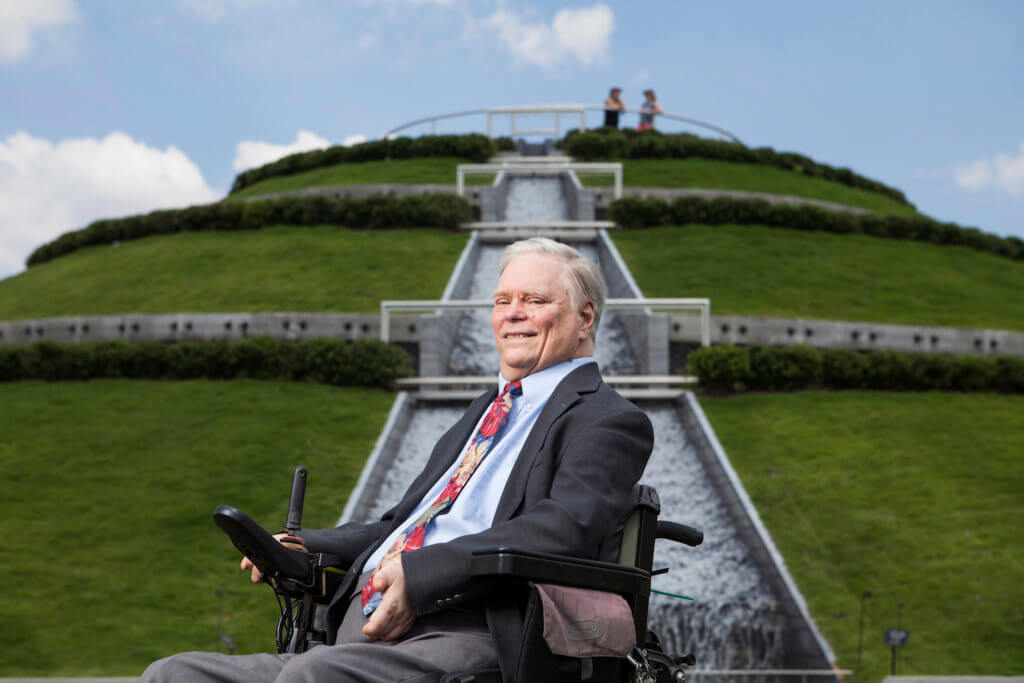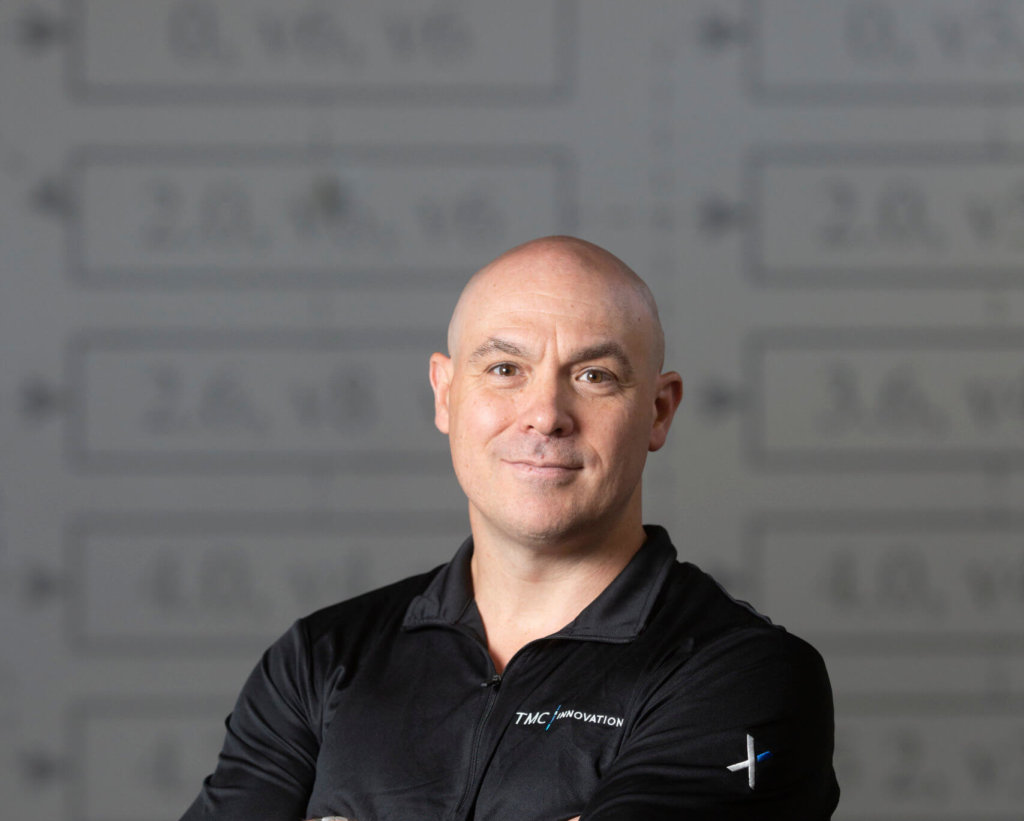A Warm Welcome Home
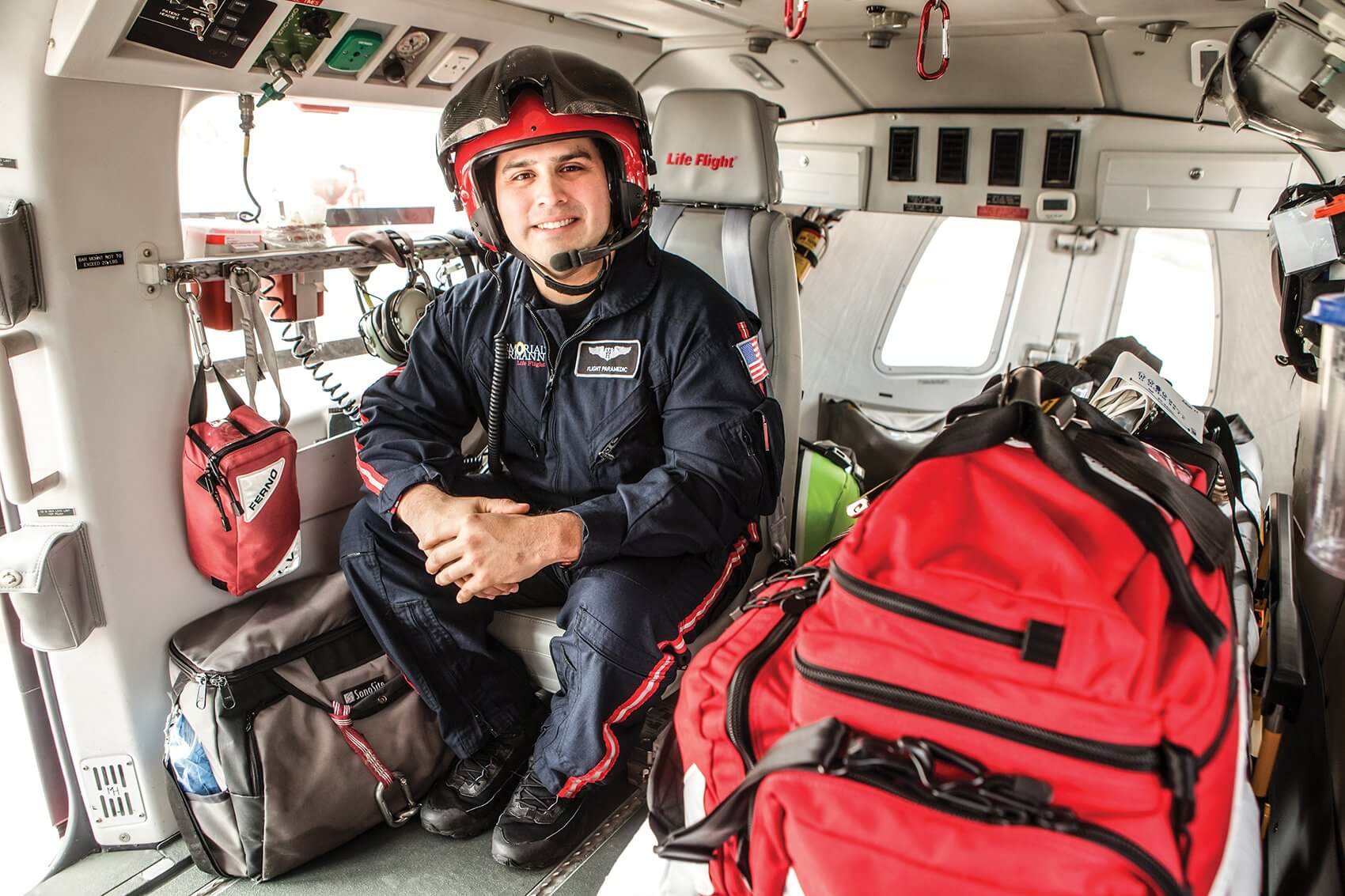
Over 200,000 men and women transition out of the military each year leaving a structured, disciplined lifestyle for the unknowns of the civilian world. According to a recent poll conducted by the Kaiser Family Foundation and The Washington Post, 50 percent of veterans found readjusting to civilian life to be difficult. For the past few years, the institutions at the Texas Medical Center have been working to ease the stress of that transition through their veteran hiring program “Hiring Red, White & You!”
The initiative began four years ago as a result of a challenge by James H. “Red” Duke Jr., M.D., the John B. Holmes Professor in the Clinical Sciences at The University of Texas Health Science Center at Houston (UTHealth) and medical director of Life Flight at Memorial Hermann Texas Trauma Institute, and retired Col. John Holcomb, M.D., director of the Center for Translational Injury Research, chief of the Division of Acute Care Surgery and vice chair of the Department of Surgery at UTHealth, and director of the Memorial Hermann Texas Trauma Institute.
Both veterans themselves, Duke and Holcomb attended a human resources council meeting, along with retired TMC executive Patricia Mitchell, and charged the attendees with lessening the disparity between veteran and civilian unemployment. The group also met with many of the CEOs in the medical center to challenge them individually to hire more veterans.
“Health care was one of the few industries at that time that was really still having robust hiring,” said Willie French, director of talent acquisition at Houston Methodist Hospital and committee chair of Hiring Red, White & You! “As a result of that discussion, we formed a committee of various members of the Texas Medical Center.”
Though the overall unemployment rate continues to improve, joblessness among many veteran groups, particularly the younger veterans who served in Afghanistan and Iraq, remains higher than the rate for civilians. Hiring Red, White & You! seeks to lessen the gap.
“We felt that we could impact three different areas,” said French. “One, we definitely wanted to see what we could do to increase the hiring of veterans. Two,
we wanted to have more recognition for veterans, specifically in the Texas Medical Center but elsewhere as well. And three, we wanted to look at how we can start to channel veterans that are coming out of the service into our hard-to-fill positions.”
In order to accomplish those goals, the committee holds special hiring events for veterans and maintains a website where veterans can register their information and search for opportunities across the medical center. The committee also holds recognition breakfasts each year where new veteran hires can network and mingle with their fellow veteran employees.
“These men and women volunteer to go protect us, and then when they come home, the least we can do is provide them opportunities to work so they can provide for themselves and their families,” said Duke. “Our debt to them is greater than we can pay, but it is our obligation to ensure that they get an opportunity to work if they want to work and they are able to work.”
Like Duke, Holcomb has long served as an advocate for veterans in the medical center. In addition to his many medical center titles, Holcomb retired from the Army in 2008 after serving 23 years.
“When the time came to get out, I was fortunate enough to come back to the TMC and have a job doing trauma research, taking care of trauma patients and acute care surgery patients and training residents and students,” Holcomb said. “I was very lucky.”
Holcomb acknowledged, however, that many other veterans aren’t as lucky and can struggle during the transition period.
“We’re Americans and Americans have always helped veterans any way they can back to the beginning of the country,” he said. “It’s an all-volunteer military—they’ve gone where the president has asked them to go, they do hard jobs, and they come home. Over the last several years the economy wasn’t great. That’s starting to turn around a little bit, but not everyone has seen that recovery yet.”
Thus far, TMC institutions have employed close to 2,000 veterans through the program, French said. He also outlined a future goal for the program: to address hard-to-fill positions in the medical center. One possibility for achieving that goal would be to create a cohort program that would train veterans leaving the service in the hard-to-fill areas to prepare them for those opportunities. He described hiring veterans in any capacity as mutually beneficial for the medical center and veterans.
“We do have opportunities and we are hiring, so we want individuals who possess the skills veterans have that in many ways mirror the corporate values of our many organizations,” he said. “They are dedicated, compassionate, can work on a team environment, are culturally diverse and have strong cultural competencies—all those values and skills resonate with veterans. It’s a win-win situation to identify individuals that possess those qualities to bring into our organizations.”
Holcomb echoed those sentiments, noting that hiring veterans is something he puts into practice in his own departments in the medical center. He has also served as a mentor for fellow Army veterans as they transition back to civilian life.
“They understand how to work in groups. They understand how to be on time. They understand the importance of a mission and how to complete a mission. They understand how to adapt and overcome obstacles,” he explained. “I think they make the best employees in the world.”
Thomas De La Fuente, Flight Paramedic, Memorial Hermann Life Flight
Jonathan Bell, Operations Manager III, Houston Methodist Physician Specialty Group
Reem Carter, Licensed Vocational Nurse, Michael E. DeBakey Veterans Affairs Medical Center Houston
William Lyles, Data Collector, Center for Translational Injury Research at UTHealth
Regina Bell, Proprietary Security Officer, Texas Medical Center

